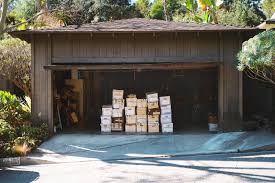
Homeowner Records: What to Keep and How Long
 Keeping full and accurate homeowner records is not only vital for claiming deductions on your tax return, but also for determining the basis or adjusted basis of your home. These records include your purchase contract and settlement papers if you bought the property, or other objective evidence if you acquired it by gift, inheritance, or similar means. You should also keep any receipts, canceled checks, and similar evidence for improvements or other additions to the basis.
Keeping full and accurate homeowner records is not only vital for claiming deductions on your tax return, but also for determining the basis or adjusted basis of your home. These records include your purchase contract and settlement papers if you bought the property, or other objective evidence if you acquired it by gift, inheritance, or similar means. You should also keep any receipts, canceled checks, and similar evidence for improvements or other additions to the basis.
Here are a few examples:
- Putting an addition on your home
- Replacing an entire roof
- Paving your driveway
- Installing central air conditioning
- Rewiring your home
- Assessments for local improvements
- Amounts spent to restore damaged property
In addition, you should keep track of any decreases to the basis such as:
- Insurance or other reimbursement for casualty losses
- Deductible casualty loss not covered by insurance
- Payment received for easement or right-of-way granted
- Value of subsidy for energy conservation measure excluded from income
- Depreciation deduction if home is used for business or rental purposes
How you keep records is up to you, but they must be clear and accurate and must be available to the IRS. You must also keep these records for as long as they are important for the federal tax law.
Keep records that support an item of income or a deduction appearing on a return until the period of limitations for the return runs out. A period of limitations is the limited period of time after which no legal action can be brought.
For assessment of tax, the period of limitations is generally three years from the date you filed the return. When filing a claim for credit or refund, the period of limitations is generally three years from the date you filed the original return or two years from the date you paid the tax, whichever is later. Returns filed before the due date are treated as filed on the due date.
You may need to keep records relating to the basis of property longer than the period of limitations. For example, basis is needed to determine gain on home sale. Any gain on sale of a home is tax-exempt for amounts up to $250,000 ($500,000 for married couples). Basis is also important in figuring casualty loss, on conversion of the home to business use, or where there’s a gift of the home (in this case, it is important to the donee). You should keep these records for as long as needed because they are important in figuring the basis of the property. Generally, this means for as long as you own the property and, after you dispose of it, for the period of limitations that applies to you.



Engage us on Facebook
Follow us on Twitter
Tweets by @mymcmedia